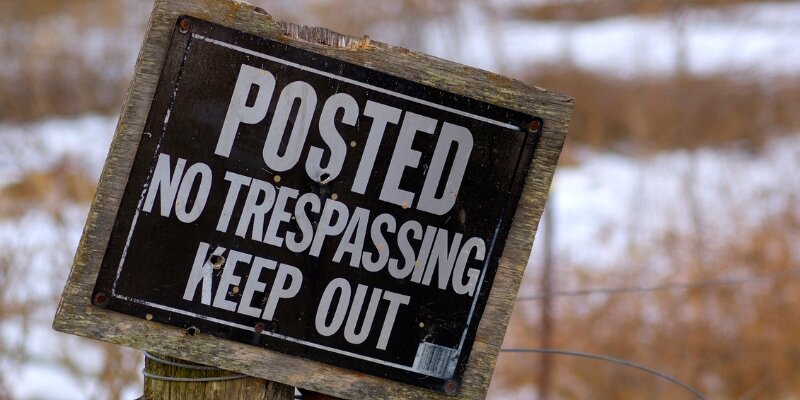
Squatting, a term often associated with vacant or abandoned properties, raises questions about the rights and responsibilities of both property owners and those occupying these spaces. In the state of Texas, the law acknowledges certain rights and protections for squatters. This article delves into the definitions, rights, and consequences associated with squatters in Texas, helping property owners and residents understand the legal landscape surrounding this complex issue.
What is a Squatter and What Are Squatters’ Rights in Texas?
Definition of a Squatter
A squatter is an individual who occupies a property without legal ownership, permission, or a lease agreement. They enter and live in a property, often vacant or abandoned, with the intent of residing there without the owner’s consent. Squatters are not to be confused with tenants, who have established legal agreements with property owners.
Overview of Squatters’ Rights in Texas
In Texas, squatters do possess certain legal rights, though these rights are considerably limited compared to tenants or home owners. Understanding these rights is crucial for both home owners and squatters to navigate their respective situations appropriately.
Rights of Squatters in Texas
Squatters Need to Pay Property Taxes
One of the essential rights and responsibilities of a squatter is the obligation to pay property taxes on the occupied property. This requirement ensures that even squatters must contribute to the local community through tax payments, fostering a sense of civic responsibility and ensuring that the local infrastructure and services are supported. It also serves as a financial incentive for home owners to address squatter situations promptly and prevent unauthorized occupation of their properties.
What Happens if a Squatter Lives on The Property?

How to Prevent Squatters From Occupying
To prevent squatters from occupying your property in Texas, it’s essential to take proactive measures:
Steps to Prevent Squatters From Entering Your Property
Home owners should secure their vacant properties by keeping them well-maintained, adequately fenced, and monitored. Timely property maintenance and regular visits can deter squatters from setting up camp.
Difference Between a Squatter and a Trespasser
Trespassers are individuals who enter a property unlawfully but have no intention of establishing residency. The distinction between trespassers and squatters is vital, as the legal consequences differ considerably.
How to Remove Squatters From Your Property

Legal Rights of a Property Owner to Evict a Texas Squatter
Property owners have specific rights to remove squatters from their property, although the eviction process can be challenging. Understanding these rights is crucial to reclaim your property, as it empowers home owners to take legal action and regain control of their assets when faced with unauthorized occupants, ensuring the protection of their property rights under Texas law.
How to Evict a Squatter in Texas
The process of evicting a squatter is a legal procedure that requires home owners to follow specific steps. It’s important to be aware of the intricacies involved in order to regain possession of your property. Here’s a more detailed breakdown of the eviction process:
- Provide Written Notice: Before initiating legal action, you must start by serving the squatter with a written notice to vacate the premises. This notice should clearly state the reason for eviction, the timeline for compliance, and any terms that may allow them to remedy the situation to avoid eviction.
- File an Eviction Lawsuit: If the squatter does not voluntarily leave after receiving the notice, you can file an eviction lawsuit in a Texas court. This legal action is necessary to obtain a court order for the squatter’s removal.
- Court Hearing: The court will schedule a hearing where both parties can present their arguments. If the court rules in your favor, it will issue a writ of possession, allowing you to regain control of the property.
- Sheriff’s Assistance: Once you have the writ of possession, you can request the local sheriff’s department to assist in physically removing the squatter from the property. It’s crucial to follow legal procedures during this step to prevent any potential conflicts or issues.
- Reclaiming Your Property: After the squatter has been removed, you can reclaim your property and secure it to prevent further unauthorized entry.
Understanding the eviction process in Texas is vital for home owners, as it enables them to protect their property rights and regain control of their assets when dealing with squatters. While the process can be legally complex and time-consuming, following the proper procedures ensures a higher likelihood of a successful eviction.
Other Articles You Might Enjoy:
- Essential Steps To Deal With Late Or Unpaid Rent – Help For Landlords With Bad Tenants
- Essential Tips For Landlords Dealing with Rental Property Damage
- Help For Landlords – What To Do When Lease Terms Are Violated
- Steps For Landlords Facing Tenants Who Refuse To Vacate
- Preventing Subletting Without Permission – Help For Landlords With Bad Tenants
Understanding the Laws Surrounding Squatting in Texas
Adverse Possession Laws in Texas
Adverse possession is a legal concept in Texas that allows squatters, under specific conditions, to claim ownership of a property through continuous and open occupancy over a defined period. Home owners should have a clear understanding of these laws and their implications to protect their property rights. Here’s a more detailed explanation of adverse possession in Texas:
1. Statutory Requirements: To make an adverse possession claim in Texas, squatters must meet several statutory requirements, which include continuous, open, and notorious occupation of the property for a specified period. The duration for adverse possession in Texas is typically ten years, although there are exceptions that can reduce this period.
2. Hostile Possession: For a claim to be successful, the possession must be “hostile.” This means the squatter must occupy the property without the owner’s permission, and their intention should be to claim ownership of the property.
3. Payment of Property Taxes: Squatters who wish to make an adverse possession claim in Texas must also pay property taxes on the occupied property. This requirement emphasizes the responsibility of squatters to contribute to the local community and fulfill their financial obligations.
4. Color of Title: In some cases, squatters may believe they have a legitimate claim to the property based on documents that may not be valid, referred to as “color of title.” Home owners should be aware that such claims can complicate the adverse possession process and should seek legal advice to navigate these situations effectively.
5. Legal Process: Adverse possession claims require squatters to go through a legal process to establish their ownership rights. This process involves submitting evidence of continuous possession, meeting the statutory requirements, and obtaining a court order affirming their ownership rights.
6. Legal Defense: Home owners have the right to defend against adverse possession claims. They can challenge the claim by demonstrating that the statutory requirements were not met or that the squatter’s occupation was not truly hostile.

Why Sell Your House To TX Cash Home Buyers?
1. You Pay Zero Fees
2. Close Quickly or the date of your choice
3. Guaranteed Offer
4. No repairs required, we buy as is
5. Less Hassles!
Call Now (281) 595-7550 Send Text
Landlord-Tenant Law and Its Impact on Squatters
Trespass Laws and Consequences for Squatters
Trespass laws in Texas are instrumental in providing legal recourse for home owners who find themselves dealing with squatters. Home owners can use these laws to pursue legal action against squatters when they believe their property rights have been violated. Here are a few more details on trespass laws in Texas and how they can help home owners address squatter situations:
- Defining Trespass: Trespassing is generally defined as the act of entering or remaining on someone’s property without permission or right to do so. This definition applies to both individuals who briefly enter the property and squatters who occupy it over an extended period.
- Civil and Criminal Trespass: Trespassing in Texas can result in both civil and criminal consequences. In the case of squatters, Home owners often pursue civil actions to recover damages or seek injunctions to remove the unauthorized occupants.
- Civil Lawsuits: Home owners can file civil lawsuits against squatters for trespassing. Such lawsuits may seek damages for any harm caused to the property or expenses incurred in removing the squatters. Additionally, home owners may request injunctions from the court to order the squatters to vacate the premises.
- Criminal Charges: In cases where squatters engage in criminal activities on the property, such as vandalism or theft, home owners can involve law enforcement to press criminal charges against the squatters. Criminal trespass charges may result in fines or imprisonment for the offenders.
- No Need for Permission: Trespass laws do not require home owners to grant explicit permission for someone to be considered a trespasser. As long as an individual enters or remains on the property without a lawful right to do so, they can be deemed trespassers under the law.
- Documentation and Evidence: To pursue legal action successfully, home owners should document instances of trespassing and gather evidence that supports their claims. This may include photographs, video footage, written correspondence, and witness statements.
Understanding trespass laws in Texas empowers home owners to take legal action against squatters and protect their property rights. Whether seeking damages or an order for eviction, home owners should consult with legal professionals who specialize in real estate and property disputes to navigate the legal process effectively.
The Bottom Line- Squatters Rights in Texas
Understanding the rights of a squatter in Texas is essential for home owners, squatters, and anyone involved in property management. By comprehending the legal landscape and taking appropriate preventive measures, you can minimize the risk of squatters and ensure the protection of your property rights in Texas.
FAQ
Can police remove squatters in Texas?
Yes, the police can assist in removing squatters in Texas, but it typically requires a court order. Property owners must follow the legal eviction process, which involves serving eviction notices, filing eviction lawsuits, and obtaining a court-issued writ of possession. Once the court order is obtained, law enforcement can enforce the order and assist in physically removing the squatters.
Can you kick out squatters in Texas?
Property owners cannot forcibly “kick out” squatters without following the proper legal procedures. Attempting self-help measures, such as changing locks or physically removing squatters, can lead to legal consequences. To remove squatters in Texas, property owners must initiate the eviction process, which includes serving notices and obtaining a court order for eviction. This legal process ensures the protection of the property owner’s rights and the squatter’s due process.
How long does it take to evict a squatter in Texas?
The duration to evict a squatter in Texas can vary depending on several factors, including the efficiency of the legal system and the specific circumstances of the case. On average, the eviction process in Texas can take several weeks to a few months. It typically involves serving an eviction notice, filing an eviction lawsuit, scheduling a court hearing, obtaining a writ of possession, and, if necessary, involving law enforcement to physically remove squatters. Property owners should consult with legal professionals to navigate the process effectively and expedite the eviction when possible.
Disclaimer:
The content provided on this blog is for informational purposes only. We are not attorneys or tax professionals. For personalized legal or tax advice, please consult with a qualified professional.
Written by Lisa Martinez, Founder of TX Cash Home Buyers

About The Company
TX Cash Home Buyers helps Texas homeowners sell quickly and simply — even in tough situations like repairs, inherited homes, or financial stress. Founded by Lisa Martinez, we’re known for our local experience, fair offers, and commitment to guiding sellers through off-market sales with clarity and care.




